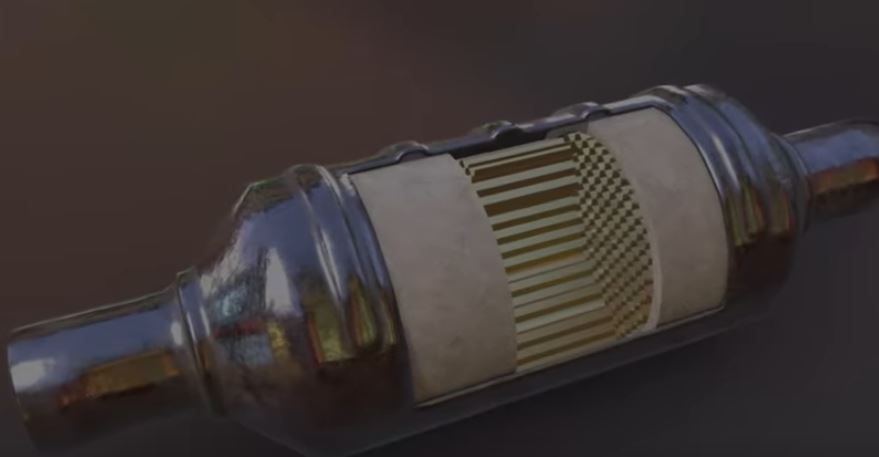If you are wondering whether it is safe driving with a Bad Catalytic Converter, well, I will say it’s not too risky to drive with a faulty catalytic converter. You may still drive your automobile usually if specific minor components of your catalytic converter are clogged. However, you’ll notice that the catalytic converter’s performance has deteriorated. In this post, we are going to look at some of the effects of driving with a bad catalytic converter and some common questions around the catalytic converters of cars.
Can you still drive with a bad catalytic converter?
Although it is not advisable, contingent on the extent of your catalytic converter issue, a faulty catalytic converter can be driven for a prolonged period.
Whenever your catalytic converter is somewhat damaged, and you ride to nearby places, it is unlikely to cause you any problems, and you do not need to rush to get it fixed or cleaned. Free Catalytic Converter Price Guide(Scrap Worth/ Price List)
Article Roadmap:
- Can you still drive with a bad catalytic converter
- Driving with a bad catalytic converter safe
- Does it harm an engine to drive with a bad catalytic converter
- Effects of driving with a bad catalytic converter
If the catalytic converter is completely blocked, you will be unable to drive your car. In addition, it may get fused directly, and over time, under some instances, it may need to be replaced straight away.
Driving with a bad catalytic converter safe
Your engine’s ability to perform to its best capacity is harmed if your catalytic converter is too severely clogged. Because the converter is clogged for venting the natural flow of gases, your engine will not be able to vent exhaust as it usually performs.
The clog in your converter, like the poor engine performance, will reduce your gas mileage. In addition, the emission could very well push back into your engine, affecting the fuel-to-air ratio and the combustor’s reaction. Again, this will result in a noticeable decrease in your gas mileage, which means you’ll spend more money on gas.
Keynote:
Hydrogen sulfide is a common by-product of the combustion of gasoline in your car. To repurpose hydrogen sulfide into less harmful sulfur dioxide, a catalytic converter is required. Unfortunately, this process cannot occur, and the result is a rotten egg-like odor. You’ll probably notice that your exhaust is a lot darker than it should be, possibly grey or black smoke.
Does it harm an engine to drive with a bad catalytic converter?
How long can you drive around with a bad catalytic converter? While it is possible to drive with a faulty catalytic convertor, There is no definite time. It depends on how damaged the convertor is.
It will be impossible to drive your vehicle if the catalytic converter is completely plugged. In addition, it may become fully fused directly or over time in some circumstances, necessitating timely replacement.
If, on the other hand, the catalytic converter has suffered severe internal damage, replacing it will mean that the mechanism is no longer functioning correctly and that the odor can be detected. Related Article: 2013 & 2012 Toyota Camry Torque Converter Replacement Cost
You might hear a rattling sound from the catalytic converter in some cases. If you hear this, the converter’s internal element has become loose and disengaged, allowing it to move around while in use.
Effects of driving with a bad catalytic converter
- Acceleration is sluggish: A whole other issue that catalyst converters commonly cause is a lack of acceleration. To operate efficiently and travel light, the engine requires a good flow of emission.
- Fuel Economy will drop: Catalytic as effective as they are at lowering emissions, converters can also cause a significant drop in gas mileage when they fail. This is because backpressure in the exhaust from faulty catalytic converters significantly reduces an engine’s fuel thermal efficiency.
- Exhaust has an odd sound: Once you change direction or brake your vehicle, the honeycomb mesh interior of the converter can break or shatter, thereby causing a rattling sound. Noise from your vehicle’s exhaust system is a sign that you should have it inspected. Though exhaust sounds range from hissing to rattling sounds, all of which are induced by an entirely different reason.
FAQ
Can a bad catalytic converter ruin your engine?
In the worst-case scenario, when your catalytic converter is too badly clogged, your engine’s ability to perform adequately will be drastically reduced. This happens because the converter is clogged for venting the natural flow of gases; your engine won’t vent exhaust as it usually does.
Is ok driving long distance with bad catalytic converter?
It’s Possible to Drive a car with a Bad Catalytic Converter for long distances. It is not too risky to drive with a faulty catalytic converter. You can move your vehicle usually even if some small parts of your catalytic converter are plugged.
When your catalytic converter fails, you’re on the road. Catalytic converters must be covered for eight years or 80,000 miles, whichever comes first, according to the Federal Emissions Warranty of the Environmental Protection Agency.
Can a bad catalytic converter cause car to shut off?
A bad catalytic converter can stall your engine. The vehicle’s engine may stall if the catalytic converter is damaged. This will generally start without issue and appear in good working order, but it will immediately slow when the gas pedal is pressed.
How does a car run with a bad catalytic converter?
Listed below are some symptoms that characterize a terrible or faulty catalytic converter. If you want to notice these symptoms, stay attentive to the state of your vehicle.
- Your car exhaust might emit a foul odour.
- Acceleration has been reduced.
- Under the vehicle, there is a lot of heat.
- Engine performance is sluggish.
- Smoke from a dark exhaust pipe
How long can I drive with a bad catalytic converter?
Although it is not advisable, you can drive as much as you want. However, getting your convertor repaired or replaced is essential to ensure your overall safety.
Can a bad catalytic converter cause overheating?
A clogged converter could be blamed if the engine is slow to respond or quits after a short period.
A misfiring spark plug or a leaking exhaust valve can cause a catalytic converter to overheat due to an excessive amount of unburned gas. A malfunctioning oxygen sensor can also cause overheating.
Can I drive my car with the catalytic converter light on?
You should be fine for now if you don’t notice any significant differences while driving. However, you should still have the light checked out because minor problems almost always escalate into larger problems if ignored.
Some vehicles may not even allow you to start the engine if significant damage has occurred or will occur. However, you can usually save the catalytic converter, like many other parts of your car, by recognizing and correcting warning signs as soon as possible.
Catalytic Converter Heat Shield Rattle fix
Effects of Driving with a Bad Catalytic Converter
The Cheapest Way to Fix Catalytic Converter, Cost & How to Fix
Hi dear, I am Gift Dennis I have been working as a Radiographer for over 8 years, but I switch my profession to what I love which is auto body part repairs and I recently got my automotive diploma last August 2020 as an auto-body repair technician. I love fitness and everything about cars, so here is where I share my expertise and experiences with those who wish to hear about them.


